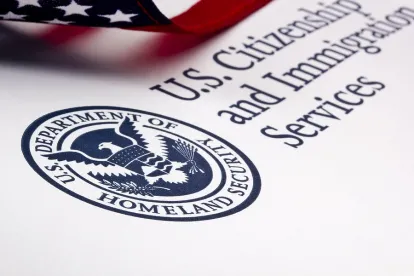The final regulation, which will take effect on January 17, 2017, clarifies USCIS policies and improves job portability for highly skilled foreign workers.
The US Department of Homeland Security (DHS) published a final regulation to allow greater job flexibility for foreign workers. The new rule formalizes a number of provisions and policies related to the America Competitiveness in the Twenty-First Century Act of 2000 (AC21), including post–sixth year H-1B extensions, portability for H-1B workers and I-140 beneficiaries, and H-1B CAP exemptions. It also adds provisions to allow for continued employment authorization for 180 days while the employment authorization document (EAD) application is pending. This regulation will go into effect on January 17, 2017.
Retention of Priority Date and Portability for I-140 Beneficiaries
The regulation eases the impact of immigrant petition revocations, confirming that I-140 petitions that are approved for at least 180 days remain valid for priority date extension purposes—even if the petitioners withdraw the petitions or go out of business. This regulation will be helpful to immigrant petition portability applicants and persons seeking H-1B extensions, as this rule confirms that priority date may be retained even after an approved immigrant petition has been withdrawn or revoked, which is consistent with current practice. Note that petitions revoked on the basis of fraud or misrepresentation may not be used to retain a priority date.
Grace Periods for Nonimmigrant Workers
Employees in E-1, E-2, E-3, H-1B, H-1B1, L-1, O-1, or TN status who lose their jobs may receive a “one time” 60-day grace period after termination. Such workers may remain in the United States during the grace period in order to wind down personal affairs or seek new employment. The rule also confirms that E-1, E-2, E-3, L-1, and TN nonimmigrants will be allowed entry 10 days before the petition validity start date and departure 10 days after the petition validity end date, as is now available to H-1B workers. There is no allowance for employment during these grace periods, except in cases of H-1B portability. Additionally, new employment may be sought during the grace period. This is a welcome retreat from the position of US Citizenship and Immigration Services (USCIS) that nonimmigrant status ends immediately upon termination of employment.
Employment Authorization for Certain Beneficiaries of Approved I-140 Petitions
Beneficiaries of approved I-140 petitions may, under certain specific circumstances, apply for employment authorization. This rule applies to persons in E-3, H-1B, H-1B1, L-1, and O-1 status. Beneficiaries of approved I-140 approved petitions may benefit, regardless of how long ago the petition was approved. In order to benefit, the priority date must not be current. Further, the beneficiary’s priority date must be less than one year from the cutoff date shown in the Department of State Visa Bulletin. A key provision in the rule is that “compelling circumstances” must exist, which could include a serious illness or disability, employer retaliation, substantial harm to the foreign national, or significant disruption to the employer. The EADs will be issued in one-year increments. Obtaining such emergency EADs will result in relinquishment of nonimmigrant status; such beneficiaries cannot extend status or adjust. We do not expect that this provision will be commonly used.
EAD Extensions
The rule allows automatic 180-day extensions of employment authorization for certain foreign nationals, including those who are applicants for adjustment of status, applicants for extension of Temporary Protected Status, and certain applicants under the Violence Against Women Act (VAWA). Under the new regulation, the EAD renewal application must be timely filed and must be in the same category as the earlier application. This benefit is not available to persons applying as spouses of E-1, E-2, E-3, H-1B, or L-1 nonimmigrants. Further, the rule eliminates the often ignored requirement that EADs be processed in 90 days.
H-1B Extensions beyond the Sixth Year
The final rule conforms DHS regulations to current DHS policies and practices with regard to H-1B extensions, with some additional clarifications. Post-sixth year extensions will be available to those who do not currently hold H-1B status, as long as they previously held that status and remain eligible for an additional period of H-1B admission. H-1B nonimmigrants who fail to apply for adjustment of status or an immigrant visa within one year of the date an immigrant visa becomes available will become ineligible for a one-year post-sixth year extension. Similarly, such extensions will not be available if, at the time the extension is filed, the labor certification filed on behalf of the foreign national is no longer valid, the I-140 has been denied or revoked, or an adjustment of status application or an immigrant visa has been approved or denied.
What this New Rule Means
This long-anticipated rule clarifies USCIS policies and improves job portability for highly skilled foreign workers. The rule allows for longer H-1B status extensions and provides more stability with regard to EAD extensions and issues around grace periods. Finally, the rule codifies the situations in which workers can retain their priority dates and transfer them to new I-140 petitions.
Be aware that the final rule must be published for 60 days before any provisions will go into effect. The effective date is January 17, 2017.



 />i
/>i
